EXCLUSIVE INTERVIEW. Mersiha Smailovic, human rights advocate and refugee activist:”This is not only a refugee crisis, this is also a crisis of humanity”
More than a million migrants and refugees crossed into Europe in 2015, sparking a crisis as countries struggled to cope with the influx, and creating division in the EU over how best to deal with resettling people. In 2016, the total number of migrants reaching Europe by two main sea routes in 2016 fell by nearly two-thirds to 364 000 in comparison with 2015.
Coinciding with a decreasing flow on the Eastern Mediterranean route, the number of migrants across the Western Balkans in 2016 fell sharply to 123 000 from 764 000 in 2015. Last year’s drop was also affected by a range of measures implemented by the EU and Western Balkan countries.
In November 2015, Macedonia, Serbia, and Croatia began to restrict passage through their borders, allowing only asylum seekers from those three countries to cross. This followed Slovenia’s decision the day before not to allow passage to asylum seekers and migrants from other countries, such as Iran, Eritrea, Somalia, Libya, Pakistan, Morocco, and Algeria.
At the beginning of 2016, in January. Macedonian authorities added an additional requirement, allowing Syrian, Iraqi, and Afghan asylum seekers through only if they intended to travel on to Germany or Austria.
Macedonian border restrictions have prevented asylum seekers of other nationalities from crossing the border, even if they may have legitimate asylum claims. EvoNews talked about the worrisome situation with human rights lawyer and refugees activist Mersiha Smailovic.
She is also a member of Macedonian NGO LEGIS, and has warned about the risks of fostering refugees smuggling after the close of the Balkan route. Smailovic talked about how she started working the refugees in her country, the importance of human rights being respected in the case of the migrants, fears that the situation could further deteriorate and which could be the possible solutions to this humanitarian crisis. The 33-year-old started her work
The 33-year-old started her work with the refugees in 2006 and since then all her humanitarian activities involved helping the refugees. In the years she has visited refugees camps she also went to the biggest camp in the world in Darfur, Kenya. There, the human rights lawyer recalls realising that refugees were „the most vulnerable people I have ever met”.
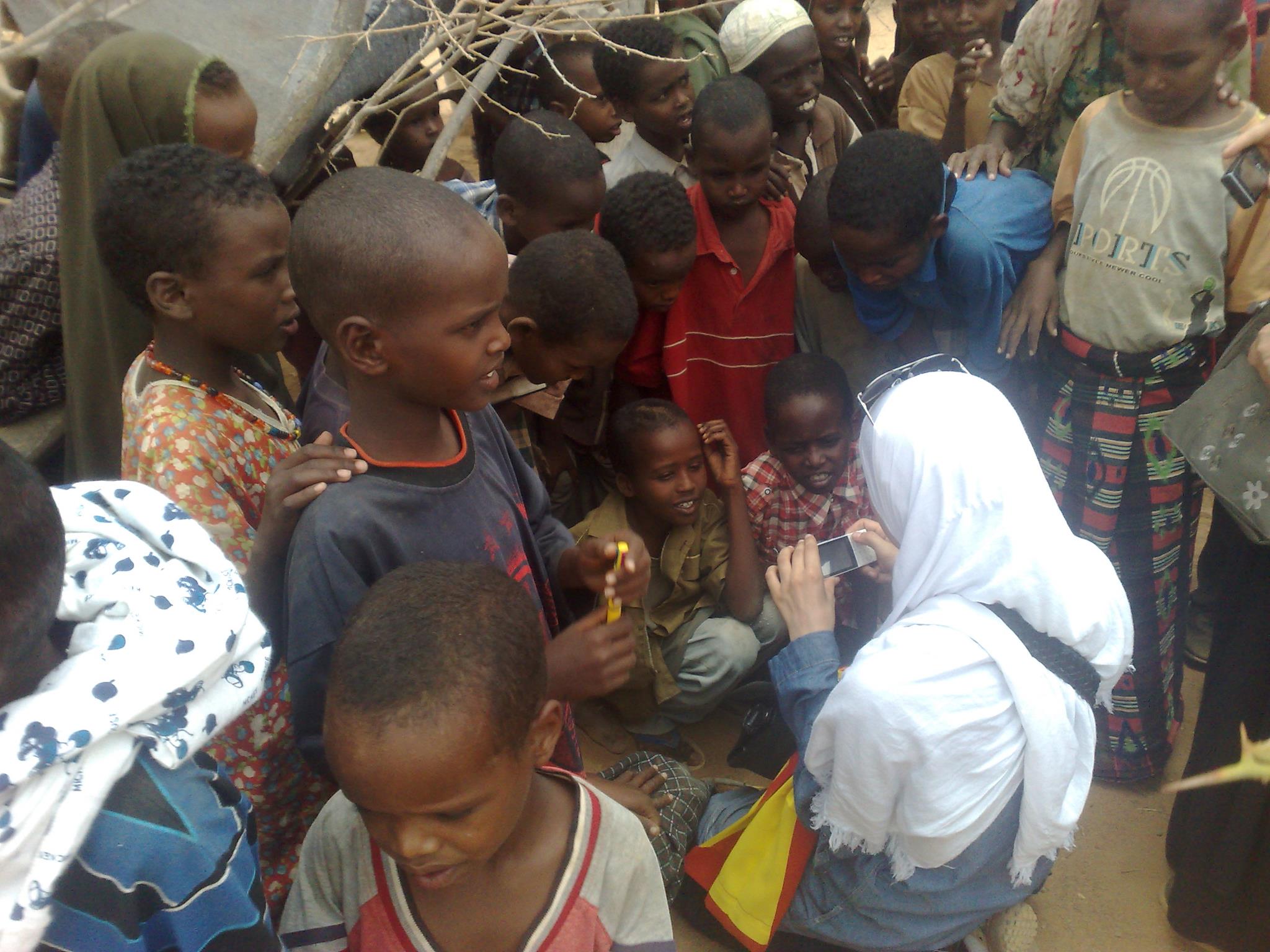
Reporter: What has been your experience with the refugee crisis? Can you tell us about a story that had an impact on you and motivated you to get more involved.
Mersiha Smailovic: The crisis started in 2014 when large numbers of refugees started coming to Europe. My experiences with this situation are two sided. I have experienced the biggest sadness but also so much happiness. In April 2015, we have received a phone call from a friend who was living in the city of Veles. He told us that a Syrian father with two small children is in the hospital. He had some internal bleeding and their journey throw Macedonia had been hard, they had to walk for days.
The children lost their mother in Damascus and their father had difficulties seeing. However, they continued their journey on foot despite his condition. The man was hospitalised but the police said he was an illegal immigrant with no legal status. He could not tell us anything about his children. We did not hear anything from him for two weeks but then he told us he is now in Germany with his children. Every refugee has a story and it can have a happy ending if we offer our help.
R: You studied Law and are a human rights lawyer. Did you choose this subject before or after you found out about the problems refugees face?
MS: I finished the law faculty in 2007, with a belief that everyone has an equal chance at justice. Knowing all the procedures was very helpful for me to find the laws that allowed refugees to use transportation. After 29 refugees died on the train tracks in Macedonia, given that all refugees are forced to walk across the country, I contacted the Government about the law on asylum.
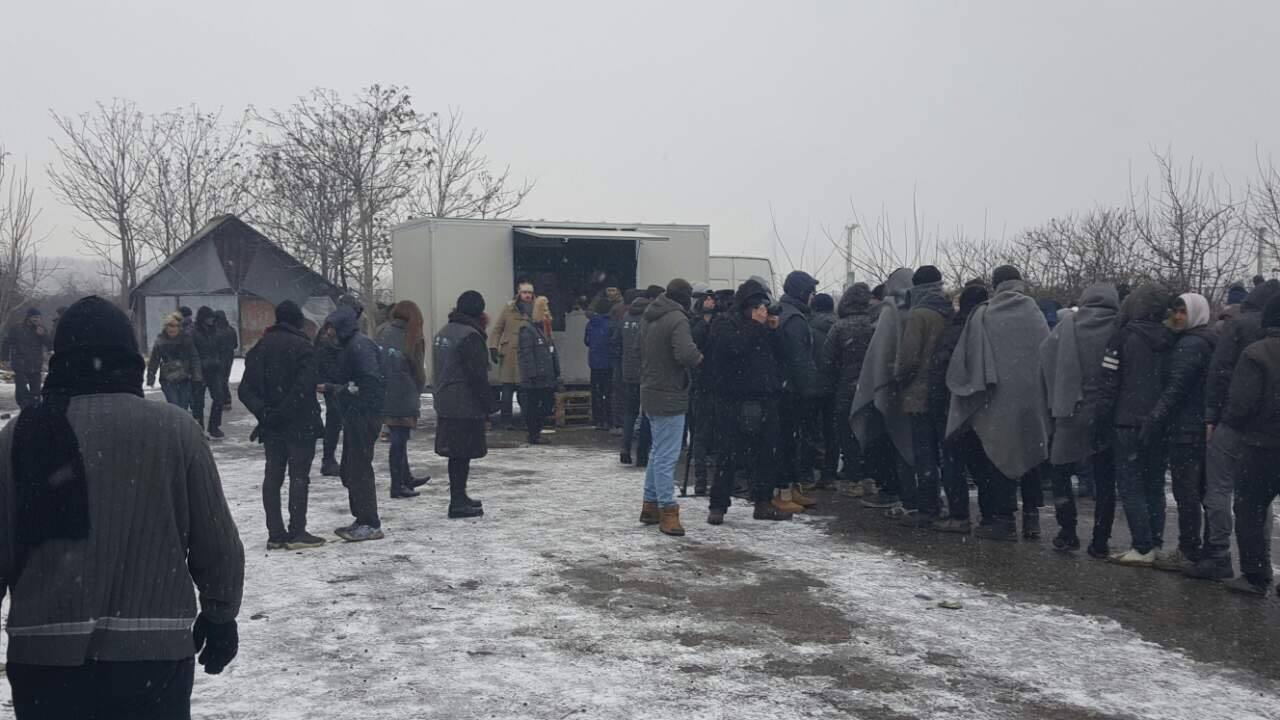
R: What is your view on the refugee crisis?
MS: This is not only a refugee crisis, this is also a crisis of humanity. We should not focus only on protecting the border, on putting more wire and changing the laws. This was also a crisis of identity, questioning the identity of the Europeans.
R: Can you tell us about the immigrants you have been helping? How is your NGO trying to offer assistance to the refugees?
MS: During the transiting of the refugees in Macedonia, every stage and weather condition came with a different need for the refugees. Our NGO, was needLEGIS, was always with them and tried to fulfil their needs. We distribute food, soups, coffee, tea, also all the clothes needed it. When the refugees stayed in Macedonia, we tried to engage them in different activities so their everyday routine will be more diverse.
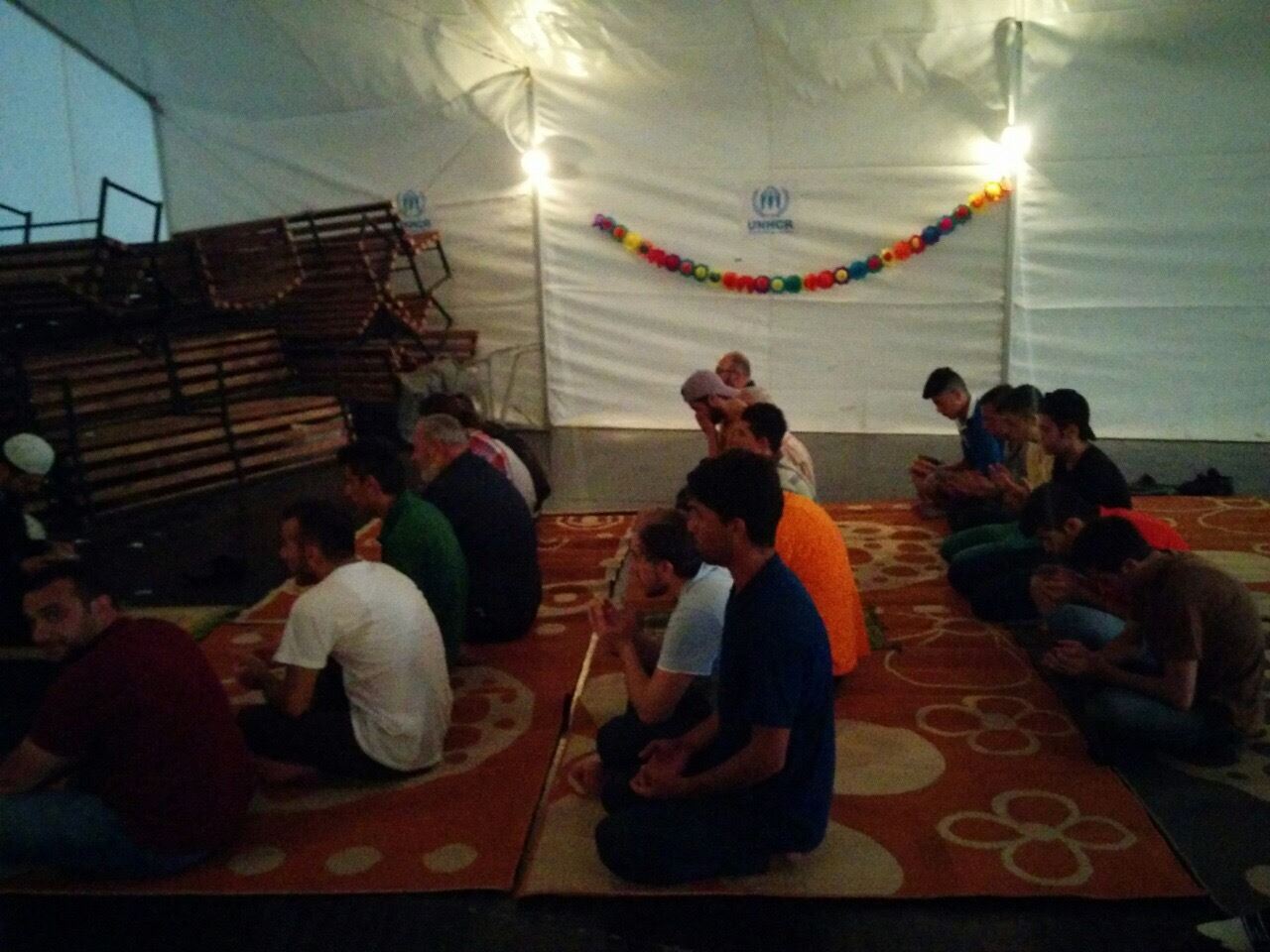
R: How long are the refugees allowed to stay in camps? Have you been in other refugee camps except those in Macedonia? How are the conditions?
MS: According to the Macedonian law, the maximum period in which you can detain one person is one year. So the refugees who did not ask for asylum in Macedonia go to the closed camps. The camps are just transit camps so the conditions are not so good. I have also visited the camps in Greece and saw how the living conditions improved over the last years. Now, the conditions are better but there they still need to improve.
R: How are the refugees protected? What rights does a refugee have? What are some of the risks they face?
MS: In Macedonia, they don’t have freedom of movement or the right to ask asylum, which means that basic rights are not offered. However, inside the camps, their needs are covered. But, now, when the border is closed, the refugees are in contact with smugglers so they can cross the border. This is why the risks are high, especially for women and children who risk human trafficking.
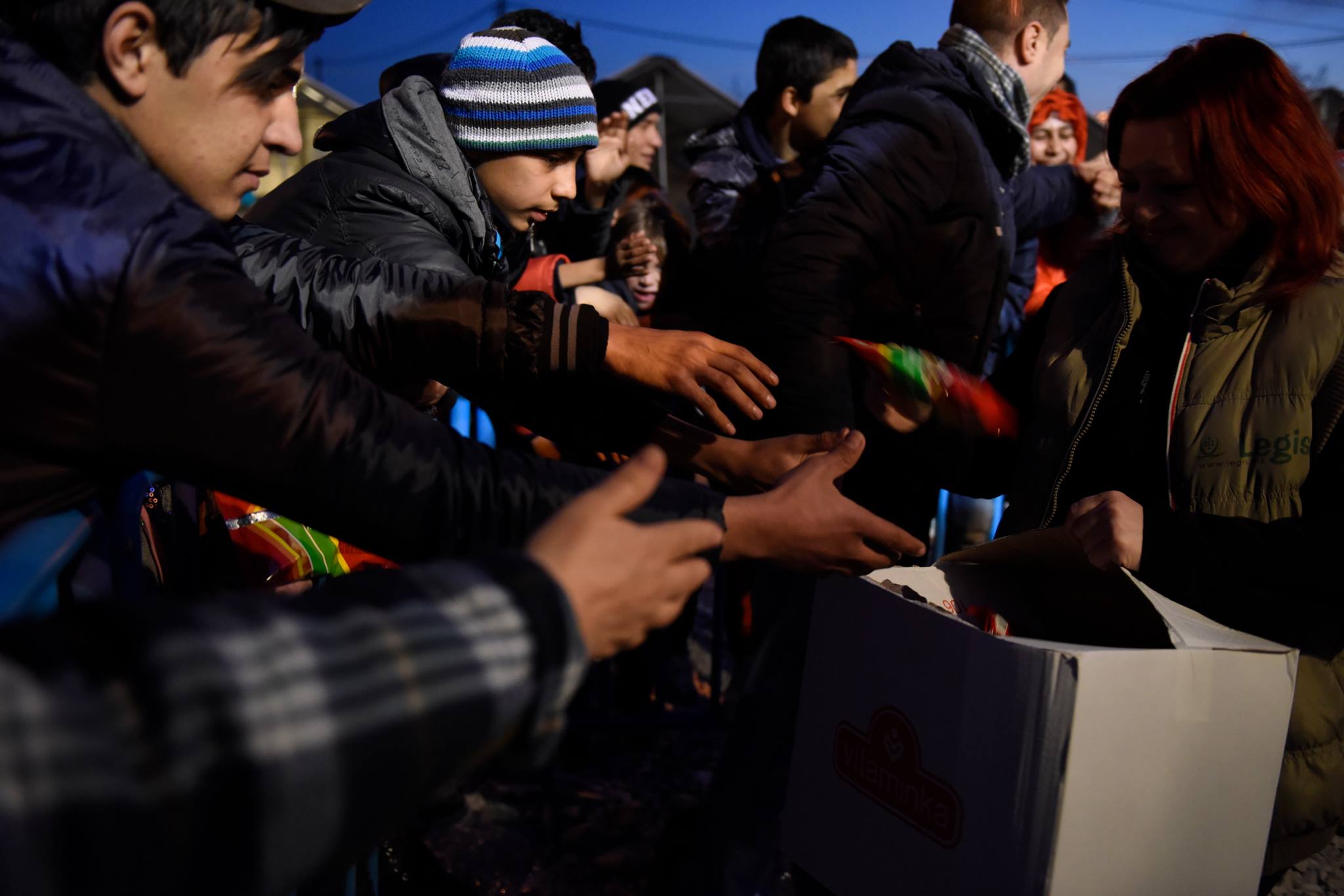
R: What do you think about the immigrant children crisis?
MS: The children are not protected enough by the law. The refugee children are forced to walk throw Macedonia, they are forced to stay in closed camps, they don’t go to school. There is also a lack of food and milk for the babies. The minors who travel alone are exposed to the highest risks.
R: What countries have you visited in the quest of helping refugees? I saw you take part in different meetings to support the refugees. How much these meetings help to improve the situation of refugees?
MS: I spend much time travelling across Europe talking about the refugees, making contacts, networking. For us, as a young organisation and citizens of a country that is faced with this issue, every experience was most welcomed.
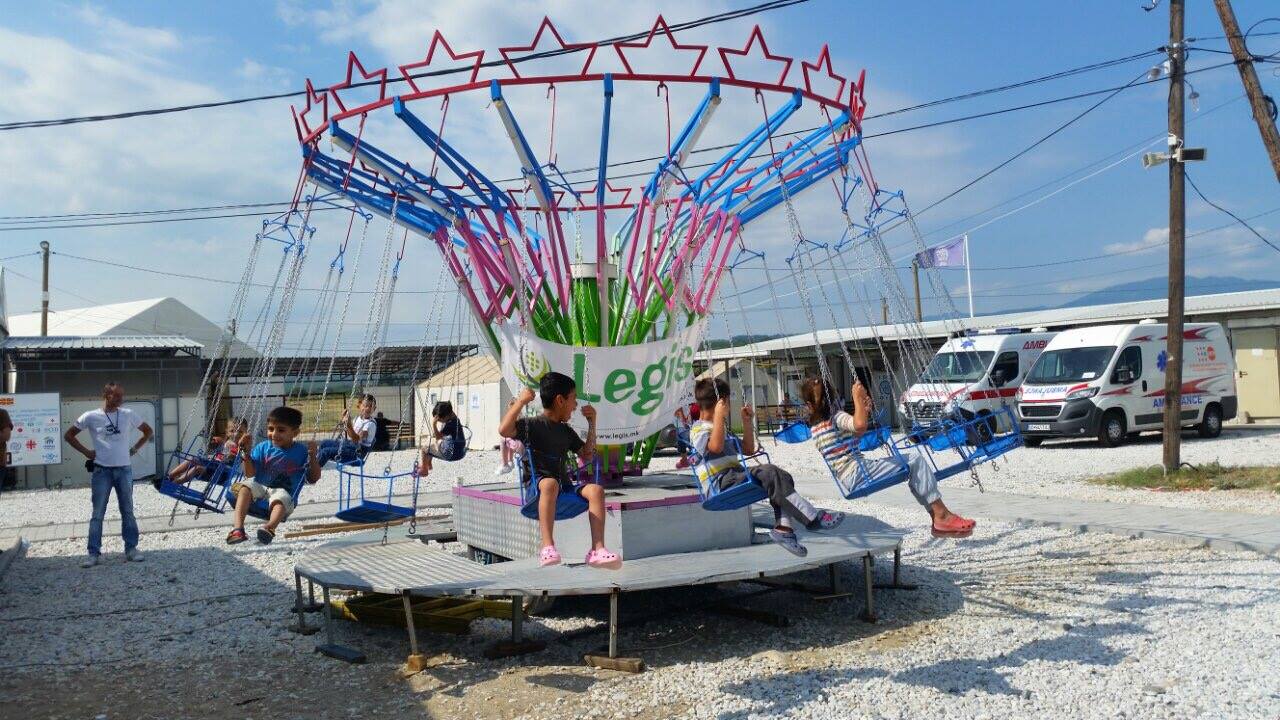
R: Can the authorities deport people who are found not to be refugees?
MS: When Macedonian authorities find refugees on the streets on their way to Europe, they are deported back to Greece. They don’t go to the process of receiving asylum.
R: What can the authorities do to improve the situation?
MS: We need one unified global action, there cannot be a partial response to this serious issue.
R: Do the recent attack in Europe (Paris, Berlin) make things more difficult for the refugees?
MS: All these attacks that happen in 2017 were not carried out by the refugees. Yet, the mass media uses the image of the refugee to ask their Government for stricter rules for granting asylum or protecting their borders.
R: What can you tell us about the migrant crisis in Macedonia? How did it change over time?
MS: Until June 2015 all the moving of the refugees through Macedonia was illegal and they were not allowed to use public transportation, so they needed more than 7 days to cross Macedonia and to enter in Serbia. On this route, they were faced with many problems. Then the law change and the refugees had 72 hours to live Macedonia or to ask for asylum.
Refugees get the registration papers in Gevgelija (the first city located at the border with Greece), and then by train, they go the border with Serbia. However, in November 2015, the European authorities decided not to allow other nationalities besides Syrians, Iraqi and Afghani to enter Macedonia.
Afte this decision, smugglers became again more active. In February 2016, refugees from Afghanistan were no longer allowed to enter the country. At the time there were almost a thousand Afghani refugees in the camps. On March 7, Europe decided to close the Balkan route and around 1500 remained in Macedonia.
Now, all of them are gone, some went forward and some return in Greece. We have only 35 refugees, who are in this transit camps, without a chance to move or ask asylum. Since April 2016, Macedonia changed the law of Asylum, declaring all the neighbourhood countries as safe countries.